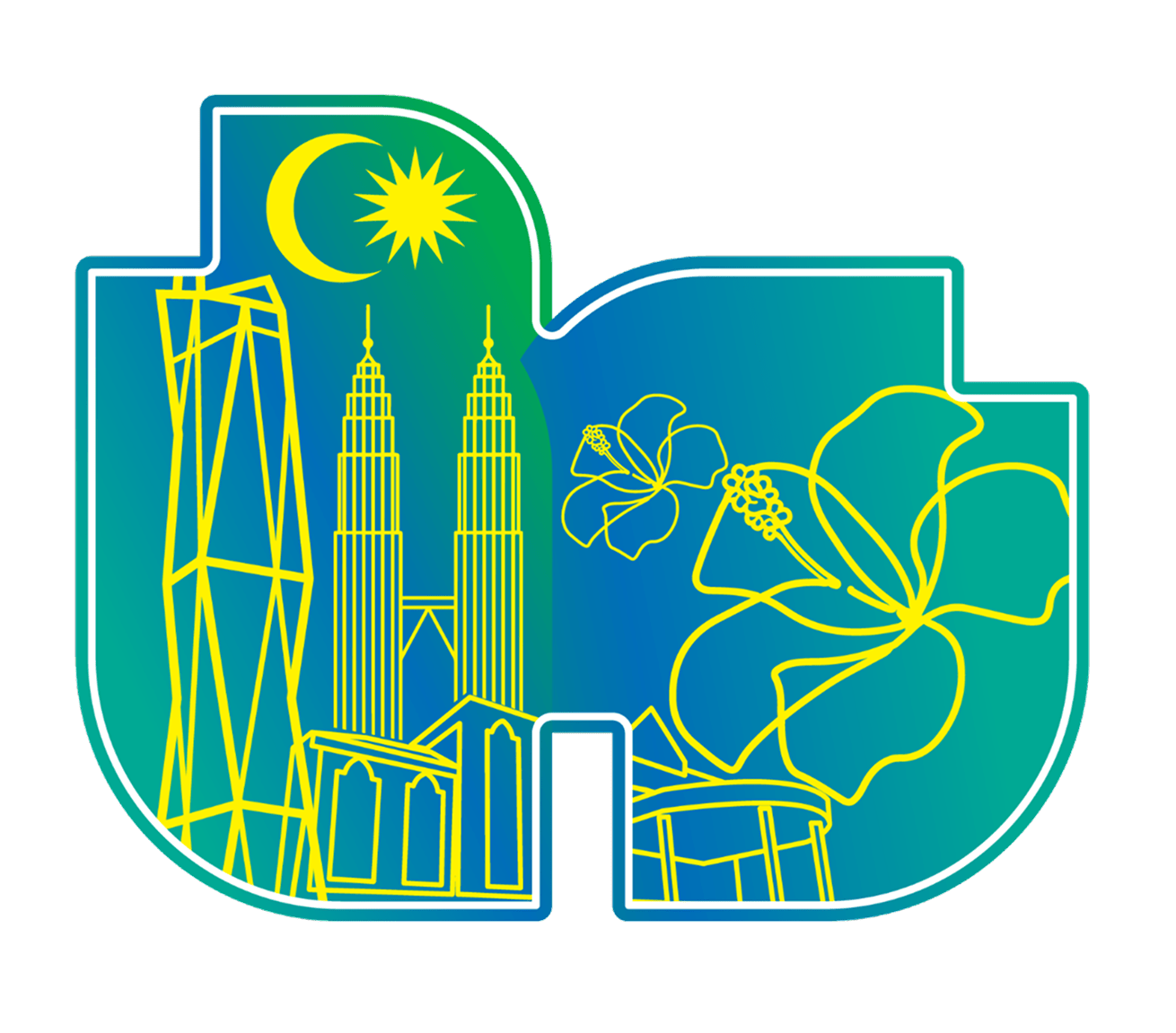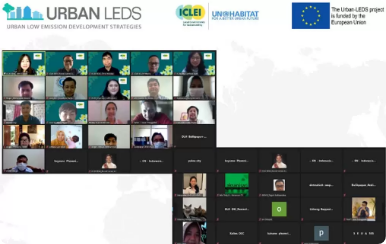The local governments and relevant stakeholders of Urban-LEDS II cities from Indonesia and Lao PDR shared their key learnings throughout the four-year implementation of the Urban Low Emissions Development Strategies (Urban-LEDS II) project during a regional networking seminar held virtually last 28 July 2021.
The Urban-LEDS II Southeast Asia Regional Exchange Session involved the Indonesia governments of Balikpapan, Bogor, Tarakan, Tangerang Selatan, and Bogor Regency; the Lao PDR governments of Pakse, Kaysone Phomvihane, Bachieng Chaleunsouk, and Outhoumphone; and national government agencies, non-government/civil society organizations, associations, academic institutions, and consultants from the two countries.
Organized by ICLEI – Local Governments for Sustainability Southeast Asia Secretariat (ICLEI SEAS) the event served as a platform for the above model and satellite cities to discuss their low emission development and climate resilience experiences before the Urban-LEDS II project officially ends this December 2021.
The Urban-LEDS project started in April 2017 through the funding of the European Union and through the joint implementation by UN-Habitat and ICLEI.
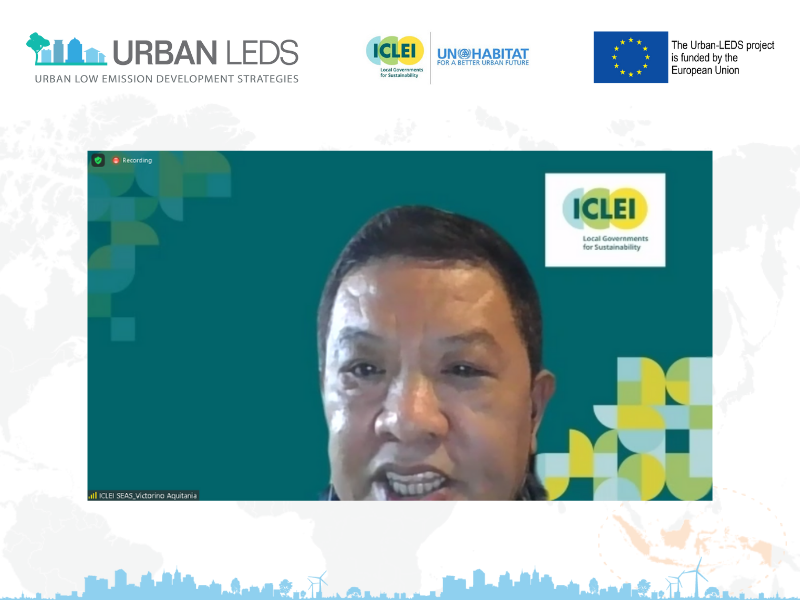

“This peer-to-peer exchange is one of the flagship mechanisms of the Urban-LEDS project in its drive to accelerate local low emission development,” said Mr. Victorino Aquitania, Regional Director of ICLEI SEAS. “Though this project will soon come to a close, we are hopeful that the project cities will continue sustaining their outputs and outcomes for truly long-term impact,” Mr. Aquitania added.
LOCALIZING LOW EMISSION DEVELOPMENT STRATEGIES
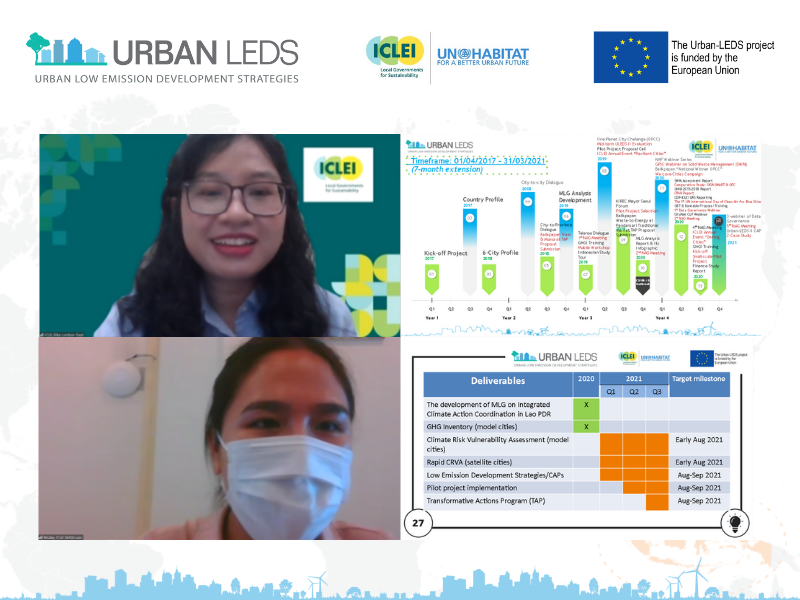

The Indonesian model city of Balikpapan shared lessons on how the city reviewed the climate action plan (CAP) phase I including some remarkable achievements and significant challenges followed by the formulation of the CAP for Phase II.
“We ensure that the project outputs, such as GHG inventory report, CRVA report, and Urban-LEDS II CAP, are used as references in the planning processes of Strategic Environment Assessment of Balikpapan Development Planning Agency period 2020-2024, as well as renewal of Balikpapan’s commitment on GHG emission reduction,” said Mrs. Nursyamsiarni D. Larose, Head of Pollution Control and Environmental Damage of the Balikpapan Environment Agency.
Mr. Bounthee Saythongvanh, Deputy Head of Greenhouse Gas Inventory and Mitigation Division, Department of Climate Change, Laos Ministry of Natural Resources and Environment (DCC-MoNRE), also explained the development of Community-level Greenhouse Gas Emissions Inventories of the country’s model cities.
Mr. Saythongvanh said “GHG inventories for the two model cities are initiatives, taking into account that the use of inventory tools such as GPC, CIRIS tools are new project learning experience. Data availability and capacity of the relevant sectors are still limited. Therefore, both technical support and financial sources need to be strengthened for capacity and data development in order to enable cities to continue to carry out their own GHG inventory.”
Additionally, Mrs. Nouansy Thiphaxay, Head of Greenhouse Gas Inventory and Mitigation Division, Department of Climate Change, Laos Ministry of Natural Resources and Environment, emphasized that more resources are needed to implement low emission development pathways. She strongly suggested that strengthening institutional capacity is a vital component in terms of means of implementation. All relevant stakeholders should also work together in breaking barriers in order to accelerate climate actions.
REFLECTIONS FROM PARTNERS
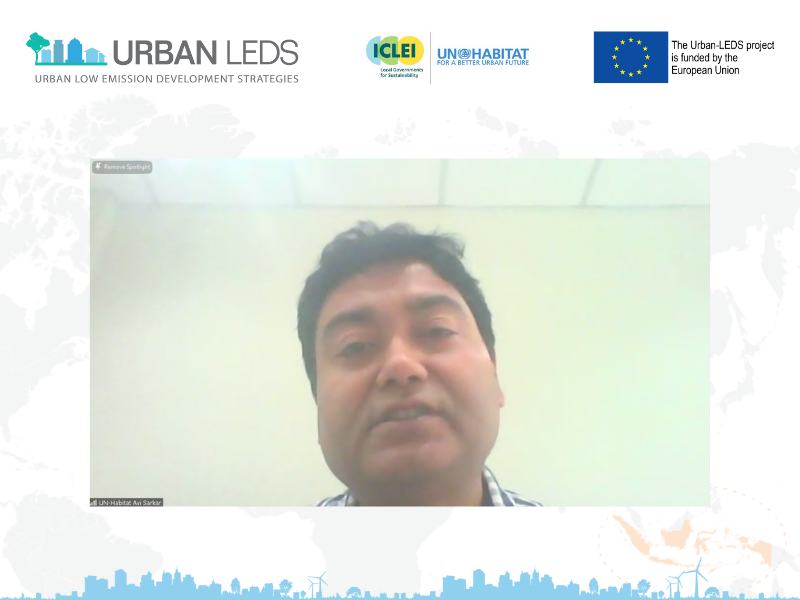

Dr. Avi Sarkar, UN-Habitat Southeast Asia Regional Advisor, highlighted the global impact of the Urban-LEDS project, saying “Cities have expressed their strong buy-in to continue the outcomes of Urban-LEDS II, where it shall be well maintained in the context of upscaling, replication, co-benefit & long-term impacts along with its sustainability by all relevant stakeholders both at the national and local level.”
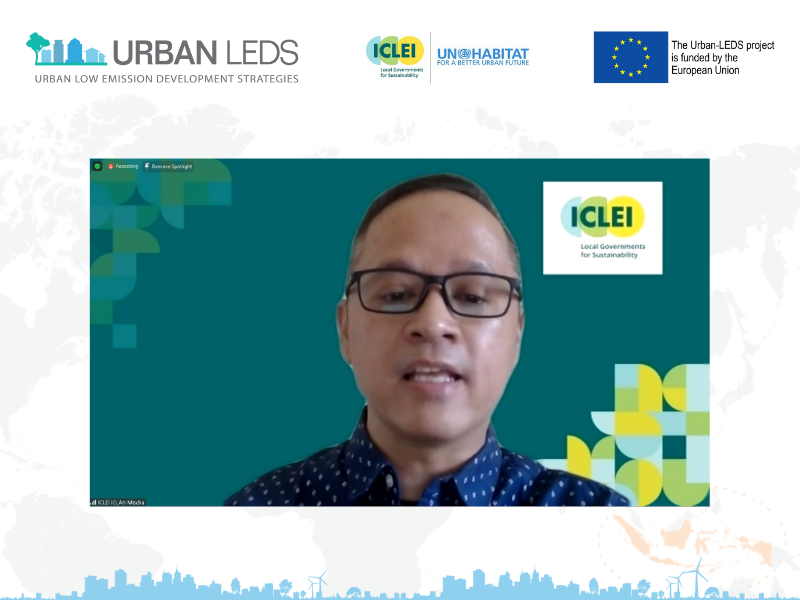

In his closing remarks, Mr. Ari Mochamad, Country Manager of ICLEI Indonesia, highlighted some reflections as one of the project implementers on the ground. He emphasized the need to engage and involve local parliaments, adding that enhancing the capacity of local parliaments will speed up the approval of the policy and local budgets. Further, understanding among the different levels of governments is crucial in enhancing the municipal framework.
“We hope that activities and programs delivered through the Urban-LEDS project will be carried out optimally as cities continue to pursue low emission development and climate resilience.” concluded Mr. Mochamad.
FOUR YEARS INTO THE URBAN-LEDS II JOURNEY
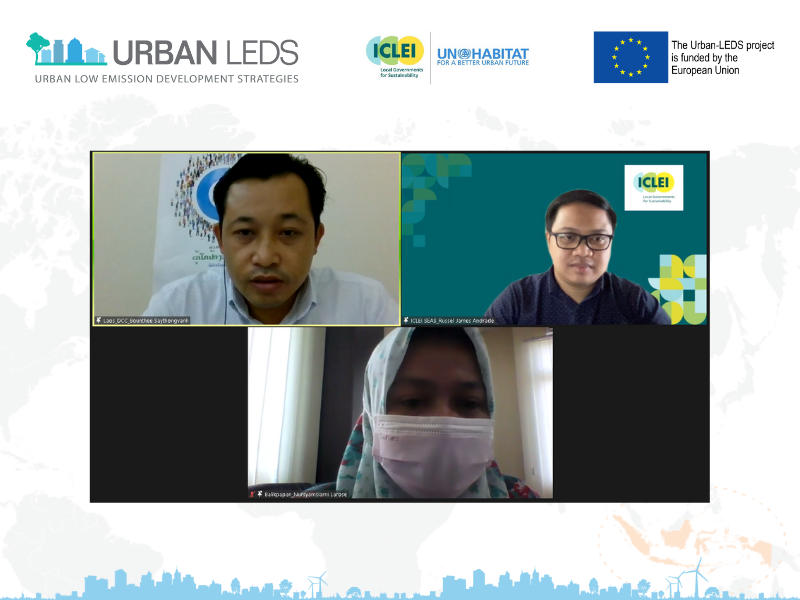

Mr. Bounthee Saythongvanh of DCC-MoNRE Lao PDR (upper left) and Mrs. Nursyamsiarni D. Larose of Balikpapan Environmental Agency (bottom) served as panelists during the roundtable discussion of learnings, achievements, and opportunities of the Urban-LEDS II project during the Regional Exchange Session.
While the pandemic has gained the world’s attention, Urban-LEDS cities continue their work in fulfilling their commitments in addressing the equally urgent global climate crisis. ICLEI and Urban-LEDS II cities in Indonesia and Laos shifted to alternative measures and made adjustments on how the project maintained its main activities, including technical assistance, capacity building, peer-to-peer exchange and learning, local-national dialogue, international promotion, synergies with other initiatives and projects, and access to finance for local project implementations.
